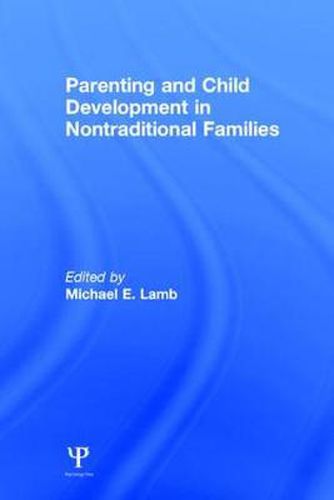Readings Newsletter
Become a Readings Member to make your shopping experience even easier.
Sign in or sign up for free!
You’re not far away from qualifying for FREE standard shipping within Australia
You’ve qualified for FREE standard shipping within Australia
The cart is loading…






The goal of this volume is to discuss - in depth - the ways in which various deviations from traditional family styles affect childrearing practices and child development. The contributors deal with the dynamics and possible effects of dual-career families, families with unusually involved fathers, families characterized by the occurrence of divorce, single parenthood, remarriage, poverty, adoption, reliance on nonparental childcare, ethnic membership, parents with lesbian or gay sexual orientations, as well as violent and/or neglectful parents. By doing so, the authors provide thoughtful and literate accounts of a diverse array of nontraditional or traditionally understudied family types. All the chapters offer answers to a common question: How do these patterns of childcare affect children, their experiences, and their developmental processes? The answers to these questions are of practical importance, relevant to a growing proportion of the families and children in the United States, but also have significant implications for the understanding of developmental processes in general.
$9.00 standard shipping within Australia
FREE standard shipping within Australia for orders over $100.00
Express & International shipping calculated at checkout
The goal of this volume is to discuss - in depth - the ways in which various deviations from traditional family styles affect childrearing practices and child development. The contributors deal with the dynamics and possible effects of dual-career families, families with unusually involved fathers, families characterized by the occurrence of divorce, single parenthood, remarriage, poverty, adoption, reliance on nonparental childcare, ethnic membership, parents with lesbian or gay sexual orientations, as well as violent and/or neglectful parents. By doing so, the authors provide thoughtful and literate accounts of a diverse array of nontraditional or traditionally understudied family types. All the chapters offer answers to a common question: How do these patterns of childcare affect children, their experiences, and their developmental processes? The answers to these questions are of practical importance, relevant to a growing proportion of the families and children in the United States, but also have significant implications for the understanding of developmental processes in general.